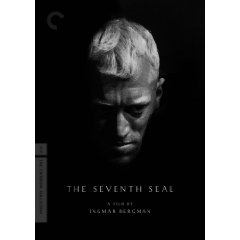
Starring: Robert Downey, Jr. & Jamie Foxx
Director: Joe Wright
When the Soloist was originally intended to be a 2008 Oscar hopeful, the initial advertising campaign made it look like a cross between Shine and A Beautiful Mind. And the setup certainly smacks of Oscar bait: Los Angeles Times columnist Steve Lopez (Downey), recovering from an especially nasty bike accident, meets the homeless Nathaniel Anthony Ayers (Foxx) during a walk through the park. Because Nathaniel plays a violin with just two strings -- and plays it rather well -- he catches Steve's eye, and Steve, always on the lookout for a story, strikes up a conversation. When the obviously mentally ill Nathaniel mentions that he went to Juilliard, Steve decides to investigate the man's life, and discovers that the onetime cello prodigy suffered a schizophrenic breakdown while he was at the school, leading to a life on the street. Steve proceeds to write a column about Nathaniel, and the overwhelmingly positive response to the story prompts the gift of a cello from a reader. After delivering the present to Nathaniel, Steve slowly finds himself, almost against his nature, trying to make life better for the man.
This kind of movie quickly falls apart if the actors overplay the inherent sadness of the situation, and thankfully the stellar cast never makes that mistake. Although he's become more famous for performances in blockbusters like Iron Man and Tropic Thunder, Downey hasn't lost an ounce of his dramatic chops. He makes Steve selfish and prickly, but also so charming and funny that you understand why his subjects trust him with their life stories. You can also see why his ex-wife (Catherine Keener), who is now his boss, stays close to him even though she left their marriage. Steve begins asking himself why he cares so much about what happens to Nathaniel, questioning his own motivations -- is it really an ongoing act of selfless goodness, or is he just doing it for his career? Steve doesn't find a satisfying answer, until realizing that this new friendship offers the chance for him to become a better person.
As the catalyst for Steve's change, foxx pulls off a disciplined, subtle performance. Foxx isn't interested in earning our pity -- a choice that undermines so many actors playing mentally ill characters. You never question the debilitating nature of Nathaniel's disorder, but you also never question that he's able to take care of himself to the best of his ability, surviving -- however miserably -- in L.A.'s large homeless community. Both he and Downey avoid obvious melodramatic choices, and in doing so they create unfailingly honest portraits of complicated people.
(109 mins.)
My Rating: **1/2



















